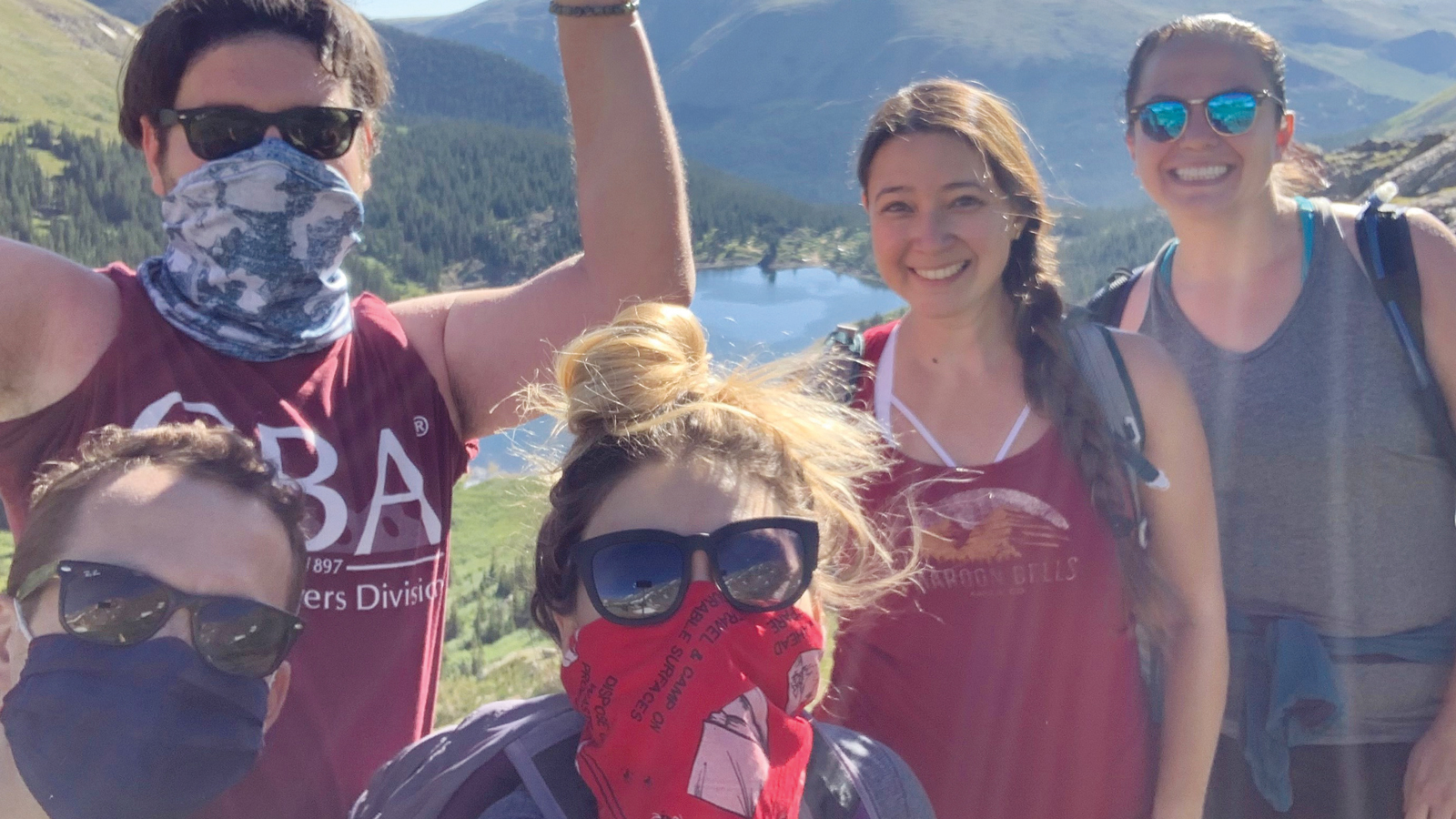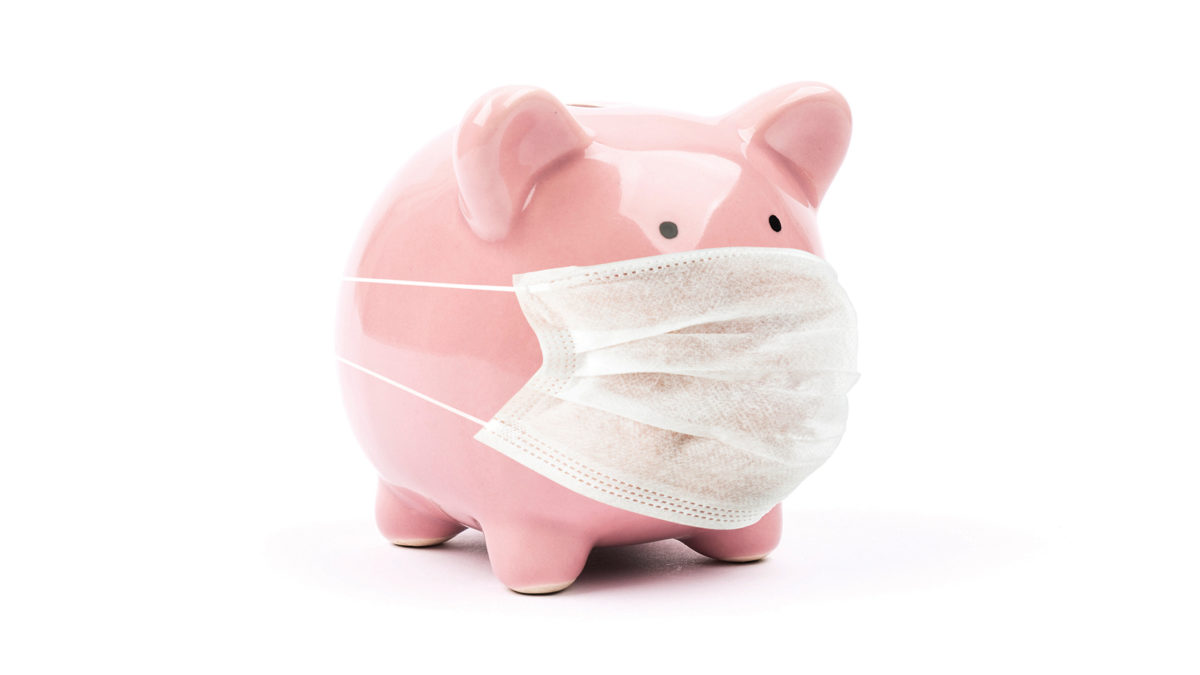
Leading the Way to Attorney Well-Being
Lawyers as Leaders
November 2020
Download This Article (.pdf)
In my August/September President’s Message, I discussed my Lawyers as Leaders theme for the year and explained how the two pandemics (COVID-19 and racially motivated violence) have intensified the need for lawyers to step up and lead in a variety of ways. In the October issue, I talked about how lawyers can lead by providing pro bono services to individuals and small businesses, particularly minority owned businesses, that are struggling economically.
But what about individuals—including lawyers—who are struggling mentally or emotionally? What factors are contributing to those challenges, particularly in 2020? What resources are available for employers and individuals facing them? And who are some of the leading lawyers and other professionals making those resources available?
A Bleak Winter Ahead?
Some medical professionals are predicting a bleak winter, in part as a result of the toll COVID-19 is taking on mental health. Even during “good” times, approximately 10 million Americans suffer debilitating psychological symptoms every winter that can interfere with their lives at work and home.1 Seasonal affective disorder (SAD) is a form of clinical depression that results from shorter days, less sunlight, and decreased ability to be outdoors.2
The problem is not only seasonal, of course. According to the World Health Organization, depression afflicts 254 million people globally and is one of the leading causes of disability.3 Indeed, depression and anxiety together cause the global economy to lose $1 trillion every year.4
Moreover, it is well established that lawyers tend to be particularly stressed and anxious. Even lawyers who are not among the millions who suffer from clinical depression or anxiety are prone to burnout and often feel a great deal of pressure to be available and responsive 24/7; to meet billable hours requirements, even during an economic downturn; to avoid mistakes in an adversarial and excessively detail-oriented profession; and to anticipate and guard against problems of all kinds.5 Lawyers are sometimes described as “paid worriers,” trained to see problems everywhere, even where they don’t exist.6 This outlook can take a toll on our emotional well-being.
According to a frequently cited 2016 study conducted by the Hazelden Betty Ford Foundation and the ABA Commission on Lawyer Assistance Programs, 28% of lawyers experience symptoms of depression, 19% of lawyers experience anxiety, and 23% experience chronic stress.7 I’m no expert, but I suspect those numbers would be even higher if the study were repeated today.
First, the pressure to be constantly available has only increased, given the perception that we are always close to our computers and couldn’t possibly have other plans. Lawyers have reported experiencing even more evening and weekend demands than they did before the pandemic, and they say they are finding boundaries between work and life even harder to maintain. In July 2020, a survey of 284 employees revealed that 69% were experiencing symptoms of burnout working from home.8
Second, parents of younger children are being stretched and stressed in new ways. They may be gaining valuable family time as employers allow greater work flexibility, but with many support services unavailable, working parents are sacrificing even more sleep than usual to meet their practice demands and additional parenting responsibilities. For many, these new responsibilities include serving as schoolteacher and tech support for their school-aged children.
Third, on top of our work-related stresses, many of us worry about the impact of the economic crisis on ourselves, our family members, and those in our community who have lost jobs, health insurance, and perhaps even a stable home. We also may be concerned that we or someone we know will contract the coronavirus or that someone who has it won’t recover. Many of us, and diverse lawyers and judges in particular, experience stress and anxiety relating to the racial justice issues that came to the fore this summer, as well as the loss of some our nation’s most prominent social justice leaders. And because this is an election year, political divisiveness is a major stressor for many as well.
So combating depression, stress, and anxiety would seem to be especially challenging in 2020.9 But being outdoors has been helpful to boost well-being and is something many Coloradans have embraced even more than usual this year, because it appears the virus is much less likely to spread outdoors.10 Notwithstanding the wildfires (another potential source of stress in 2020), I frequently work in my backyard. My husband and I have been trying to walk at least once per day in lieu of going to the gym. I have also scheduled several socially distant “walk ‘n’ talks,” my favorite way to hold in-person meetings. I have socialized in person almost exclusively by going for walks with friends. And we have enjoyed a few hikes and outdoor movies as a family as well.
I have felt the boost that walking and being outside as much as possible provides to my mental health. Studies have proven that even the smallest bit of nature—a single tree, a small patch of flowers, a house plant—can improve mental health.11
Shorter, darker, colder days are coming, however, and with them, for many, will come SAD or the (milder but even more common) winter blues.
Loneliness is the New Smoking
With the added requirement this year of self-isolating by working from home or, for students, attending online school, emotional well-being is an even greater concern than usual.12 Isolation and loneliness have a strong link to emotional health and well-being.13 Isolation can both cause mental health issues, and be a mechanism for coping with them.14 The same is true of substance abuse and overeating.15
Due to the pandemic, some of us face feelings of isolation from living alone or our inability to gather with extended family and friends. Experts even advise foregoing family gatherings for the holidays this winter.16 A 2020 trends report from Ford Motor Company found that loneliness is also becoming a global epidemic and its impact on physical health is comparable to obesity or to smoking 15 cigarettes per day.17 And going online for social interaction may not be the best solution: 43% of millennials and Gen Zers reported that social media often makes them feel lonely.18
Indeed, a recent survey found that more than 60% of Americans are lonely.19 And a recent study suggests that the nation’s emotional pain and suffering could result in as many as 75,000 “deaths of despair” in the United States over the next decade.20
Of course, in less than one year we already have lost far more lives to COVID-19.21 And many others have been afflicted by the virus in ways that may impact their lives for years to come.22 So we need to adhere to physical and social distancing protocols and follow all other public health and safety guidelines.23 Keeping our distance from others is an unusual but important choice we are making for the benefit of our communities’ physical well-being.24 But we also need to recognize this mental health issue and seek to combat loneliness and isolation—as well as the other stresses and pressures that may be impacting lawyers’ emotional well-being—in a way that is safe for our communities.
Addressing Emotional Well-Being Issues at Work
Even in a work-from-home environment, employers can play a role in addressing these issues, and should be motivated to do so. Employees’ emotional distress can manifest in numerous ways and impact their work and productivity.25 For example, emotional distress can result in sleep disruption, fatigue, lack of concentration, slowed cognition, forgetfulness, irritability, and self-medication, all of which can in turn result in tardiness, procrastination and distractibility, indecision and project delays, errors and omissions, strained work relationships, missed deadlines, and absenteeism.26 Lost productivity due to chronic health problems costs US businesses over $225 billion per year,27 and the cost of alcohol use is $249 billion per year, with lost productivity accounting for 72% of that amount.28
Moreover, an individual’s experience at work can have a significant impact on their emotional well-being and quality of life.29 Law firm leaders and others in charge of legal organizations should be mindful of this fact and try to address these issues in an intentional way.
First, employers should consider communicating frequently and being as transparent as possible with their workforce. “Every leader knows that communication during a crisis is critical,” and when leaders “communicate with urgency, transparency, and empathy, it helps people adjust to the constantly changing conditions crises bring.”30 Employers should address job security concerns explicitly and provide safe channels for employee feedback.31 Employers can also facilitate and encourage support groups and networks among coworkers.
Second, employers can be intentionally respectful of employees’ nights and weekends when possible, or find other ways (such as offering “mental health days” and encouraging vacations and staycations) to help employees make time for themselves.32
Third, employers can focus on getting to know their employees’ goals, strengths, and talents and taking them into consideration in making work assignments. “If employers can help employees feel valued and align their work with the right roles that suit their personalities and life objectives, that could have a positive impact on their performance, lower risk and attrition,”33 and increase their well-being—a win-win for both parties.
In addition, larger employers with resources can develop programmatic efforts to increase awareness about mental health issues, launch anti-stigma campaigns, and train managers and supervisors to better respond.34
ABA Well-Being Campaign and Pledge
In early 2019, my large law firm, Gibson Dunn, became an inaugural signatory to the American Bar Association’s (ABA) Well-Being Pledge in connection with its Well-Being Campaign.35 The campaign was launched to improve the mental health landscape of the legal profession.36 The campaign’s primary vehicle was the pledge, which called upon legal employers (law firms, corporations, government agencies, legal aid organizations, etc.) to (1) recognize that mental health problems represent a significant challenge for our profession, and acknowledge that more can and should be done to improve the health and well-being of lawyers; and (2) pledge to support the campaign and work to adopt and prioritize its seven-point framework for building a better future.37
To that end, Gibson Dunn embarked on an ambitious plan to address not just the well-being of our lawyers but the well-being of our entire support staff as well. “The effects of stress on law firm staff has often been overlooked,” even though, as reported in The National Law Review about a year ago, “a number of law firm [non-attorney] professionals ha[d] recently died by suicide.”38
Our firm created a new department with a dedicated well-being director and manager at the beginning of this year. Then we implemented a firmwide global wellness program that encourages each employee to design and move toward a personal vision for well-being. The wellness topics the program addresses include sleep health, proper hydration, live workouts, and stress management. Participation is entirely voluntary. The program’s mission is to help improve life quality through new and existing resources, enabling attorneys and staff to define and achieve their own wellness goals.
The firm also sponsors an Employee Assistance Program, which offers 24/7 counseling to all employees and their family members to support our employees’ well-being. Additionally, Gibson Dunn covers a One Medical membership for all US personnel and their spouses/domestic partners and dependents. One Medical provides primary care for children and adults, including group visits and COVID-19 testing.
All firm employees also are eligible for a Journey Meditation subscription, which provides access to live and archived meditations. In addition to meditations on reducing stress and self-care, some meditations are designed for the entire family. Plus, our global wellness program advances a “work-life synergy” through convenience-care referral services for daily life needs at no charge, including referrals for local professionals (e.g., electricians, plumbers, house cleaners), car purchases, and travel resources.
At the time, we had no idea what 2020 would bring or the acute need that would arise for these services. But ours is far from the only well-being program or approach. I mention it as an example of what some large law firms are doing to improve attorneys’ mental health and also because our wellness director, James Keshavarz, and manager, Melissa Ann de Carvalho, are very generous in sharing ideas with employers who are interested in doing something similar.
That said, a uniform approach to these issues won’t work across diverse workforces.39 Organizations must customize their well-being programs based on what they are experiencing.40 Collecting qualitative data from employees and leaders within organizations, through interviews or focus groups, can help organizations understand employees’ needs regarding mental and emotional well-being.41
Colorado Task Force on Lawyer Well-Being
Another excellent resource for large and small employers, as well as individuals including law students and judges, is the Colorado Task Force on Lawyer Well-Being. Justice Monica Márquez chairs this task force, and many of the Bar’s other leading lawyers also are involved, including former CBA President Mark Fogg, Colorado Hispanic Bar Association Past President Christine Hernandez, CBA President-Elect Joi Kush, and CBA Executive Council member and CAMP Director Ryann Peyton.42
The Colorado Task Force is modeled after the National Task Force on Lawyer Well-Being, which Colorado’s former Attorney Regulation Counsel Jim Coyle co-chaired in 2016 with the modest goal (not really) to change the culture of the profession. The National Task Force produced a report called “The Path to Lawyer Well-Being.”43 It also developed a robust Well-Being Toolkit that is, as Justice Márquez aptly described it, “chock full of ideas for lawyers and legal employers.” This toolkit and a whole host of articles and other helpful information are available on the Colorado Task Force webpage.44
Like the National Task Force, the Colorado Task Force views lawyer well-being as “part of a lawyer’s ethical duty of competence. It includes lawyers’ ability to make healthy, positive work/life choices to assure not only a quality of life within their families and communities, but also to help them make responsible decisions for their clients.” Indeed, Colorado Rule of Professional Conduct 1.16(a)(2) provides that a lawyer must not represent a client or must withdraw from representation if the lawyer’s mental or physical condition materially impairs the lawyer’s ability to carry out the representation.
The Colorado Task Force has been meeting and working since September 2018. Members broke into five working groups focused on:
- law students;
- judges (whose roles are especially isolating and for whom the stigma attached to help-seeking behaviors is even more acute);45
- data collection;
- connecting resources; and
- the business case for large law firms to buy in.
Each group is working diligently to put together concrete recommendations in a final report. The plan had been to release the report this spring in connection with a late-April in-person event—but 2020 had other plans. The task force regrouped this summer and will be releasing its report soon, perhaps even before this Message is published.
Additional Well-Being Resources for Colorado Lawyers
In addition to the foregoing resources for large and small employers, we are fortunate to have a number of programs in Colorado designed to help lawyers who may be struggling mentally or emotionally. The lawyers leading these programs are providing an invaluable service, particularly during these tumultuous times.
The Colorado Lawyer Assistance Program
The Colorado Lawyer Assistance Program (COLAP) is one of our longest-standing and most important resources for emotional and mental well-being in Colorado. Established in 2011, COLAP is a free, confidential, and independent program for Colorado lawyers, judges, bar applicants, and law students. COLAP’s mission is to promote well-being, resiliency, and competency by assisting members of the Colorado legal community with personal and professional issues that compromise their practice, efficacy, and quality of life.46 COLAP protects the interests of clients, litigants, and the general public by educating the bench, bar, and law schools about well-being and impairment issues, and by providing confidential assistance to the legal community.
COLAP Executive Director and leading lawyer Sarah Myers is a Colorado-licensed attorney, marriage and family therapist, addiction counselor, and post-graduate level teacher as well as a certified trauma and abuse psychotherapist. She has more than 20 years of experience specializing in stress management, psychoneuroimmunology, compassion fatigue, professional burnout, and behavioral health issues for legal professionals as a program director, therapist, clinical supervisor, educator, and author. Likewise, COLAP staff are attorneys and legal professionals with behavioral health credentials and experience with well-being issues including stress management, substance use, and a broad range of mental health issues. They are available to consult about personal as well as professional issues and concerns.
Lawyers who are experiencing stress, depression, anxiety, or burnout are encouraged to contact COLAP for a free, confidential, and virtual consultation about stress management, return-to-work anxiety, supporting colleagues and employees, addiction and substance abuse, and other timely topics. Importantly, COLAP is separate and independent from the Office of Attorney Regulation Counsel. Office visits are by appointment only, and all communication with COLAP is confidential. COLAP cannot release any information without a signed release.
COLAP has a list of “quick tips” for well-being on its website: http://coloradolap.org/wp-content/uploads/2020/06/Quick-Ways-to-Improve-Happiness.pdf. To contact COLAP, call (303) 986-3345 or email info@coloradolap.org.
Colorado Attorney Mentoring Program
CAMP is another resource for lawyers seeking emotional well-being. Mentoring is an antidote to the loneliness and isolationism described above.47 As CAMP Director Ryann Peyton notes, mentoring relationships provide a safe space to discuss feelings, connect lawyers to resources that build resiliency, and offer peace of mind personally and professionally. That emotional support is vital as lawyers do their best to navigate this demanding profession. Mentoring also has been championed as a proven method to implement diversity and inclusion goals, close opportunity gaps, and retain lawyers within the profession.
CAMP generates meaningful and relevant mentoring relationships through 15 formal and informal mentoring programs. Each program encourages mentoring pairs to incorporate principles of professional identity and lawyer well-being into every mentoring relationship. CAMP also hosts educational speaking engagements for community partners across the state and produces monthly in-house professional development webinars through uniquely tailored CLE courses spanning topics related to professionalism and wellness.
The CAMP approach is to catalyze the power of collaboration among individuals with different perspectives, backgrounds, and areas of expertise to foster training and education with meaningful positive influence on legal practice and lawyer well-being in Colorado. CAMP cultivates an environment of thoughtful and informed professionalism and invests in the long-term intellectual, professional, and social growth of Colorado lawyers.
To connect with a CAMP mentor (or to become one—giving back is another way to improve emotional well-being48), visit https://coloradomentoring.org.
CBA Young Lawyers Division Wellness Committee
The CBA Young Lawyers Division (YLD) has a Wellness Committee that is focused on bringing relaxation, movement, and safe socialization to younger lawyers statewide.
A Pew Research study found that younger adults have been the hardest hit emotionally by COVID-19.49 According to the data, the emotional effects are greatest for those aged 18 to 29, with 42% of that demographic reporting anxiety and 36% reporting depression.50 People aged 30 to 39 were the next most emotionally affected group, with 34% reporting anxiety and 28% reporting depression.51 Older people, who are at greater risk for being hospitalized with and even dying from COVID-19, were far less likely to report emotional reactions.52
The YLD is seeking to address the mental health impacts of the pandemic on younger lawyers, who may be finding it especially difficult to step away from their computers and meet other lawyers. In May 2020, the YLD launched its wellness series to enable CBA members to gather in a safe way, share thoughts about the major changes we all are experiencing as a result of COVID-19, and continue to build personal and professional relationships, for greater well-being.
Each series has included three to four events, including online and in-person outdoor yoga, high-intensity interval training and other fitness classes, and in-person hikes. The YLD also hosted an online cooking class, and they have undertaken a fall foliage tour around the state. The YLD has scheduled an online nutrition seminar for November 4, 2020, to provide members with insight into meal preparation, healthy snacking, and immunity-building diets as we move into the generally stressful holiday season. The instructor also will provide stress-management strategies like stretches and breathing exercises that members can use daily as a quick reset.

In addition, the YLD hosted a virtual Ted-style talk moderated by YLD Chair Spencer Rubin and featuring young attorneys Lauren Concepcion, Kiki Council, and Jason St. Julien.30 Recognizing the connection between diversity and inclusion on the one hand and attorney well-being on the other,54 the YLD program acknowledged the ways in which diverse lawyers have been particularly impacted by specific stressors arising from work, the pandemic, and their desire to spend time engaging in social justice efforts. The panelists offered young, diverse lawyers coping strategies, many of which focused on the importance of self-care.
To join in for the YLD’s wellness activities, contact a YLD Wellness Committee Co-Chair: Kaela Zihlman (kaela@willoughbylaw.com), Karen Hen (karen@parkerlipman.com), or Raquel Hernandez (raquel@drexler.law).
CBA Modern Law Practice Initiative
The CBA Modern Law Practice Initiative (MLPI) is also working to address emotional well-being issues by changing the way lawyers practice.55 Recognizing that too many lawyers feel disconnected and unfulfilled in their practices, MLPI seeks to empower lawyers to build customized practices that complement each lawyer’s professional and personal needs. MLPI provides the tools, mentorship, and inspiration necessary to help lawyers build thriving law practices that expand access to justice. By embracing the notion of doing well by doing good, the MLPI community aligns personal values with professional goals. Practicing in alignment minimizes stress and maximizes fulfillment from the outset, thereby preventing many well-being concerns before they even start. To connect with this growing community of modern lawyers, visit the MLPI’s Community Page at https://www.cobar.org/For-Members/Modern-Law-Practice-Initiative.
Colorado Lawyer Self-Assessment Program
The Colorado Lawyer Self-Assessment Program56 is designed to help lawyers better serve clients and simplify their professional lives, which in turn reduces stress. The program arose from a multi-year initiative of a subcommittee of the Colorado Supreme Court’s Advisory Committee. This subcommittee of over 50 practicing lawyers and other professionals identified 10 areas of self-assessment that allow lawyers to reflect on practice strengths and weaknesses. The self-assessments emphasize high-quality client service, efficient law office management, and compliance with professional obligations, and they identify resources ranging from template forms to advisory opinions to articles on professionalism. One of the self-assessments is specifically focused on wellness and inclusivity. Lawyers completing the assessment can claim up to three general and three CLE ethics credits. The program, including answers to the self-assessment questions, is confidential.
The Waterman Fund
Finally, as I mentioned in my last President’s Message, the Denver Bar Association Waterman Fund is a charitable trust that provides financial assistance to elderly, infirm, or incapacitated members of the Colorado bar who have practiced law in Colorado (not just Denver) for at least 10 years. Financial concerns are “far and away Americans’ leading source of stress.”57 Studies have found that people experiencing financial stress are at greater risk for insomnia and depression as well as relationship problems.58 The Waterman Fund may be able to relieve some of that stress for certain attorneys. To be eligible for financial assistance from the Waterman Fund, lawyers must be “in good repute and standing.” All information about applicants and awards from the Fund is strictly confidential. An application can be downloaded from the Waterman Fund page: http://denbar.org/Members/Waterman-Fund. Direct questions or a completed application to Lori Krupske at (303) 824-5331 or lkrupske@cobar.org.
Conclusion
While nearly everyone is feeling the strain of 2020 on some level, we are not all affected similarly, and the potential solutions are not one-size-fits-all. Fortunately, leading lawyers and other professionals are focusing on emotional well-being in our profession, resulting in the varied resources and approaches described above.
In addition to these Colorado-specific resources, the ABA also has a list of mental health resources for the legal profession at https://www.americanbar.org/groups/lawyer_assistance/resources/covid-19–mental-health-resources.
Of course, if a mental health crisis rises to the level of an emergency, the best resource will be 911. But, as Justice Márquez notes, most of us are not even in crisis most of the time. Instead, we are stressed, anxious, burnt out, or exhausted, and we cannot be our best selves—best lawyers, best parents, best judges, best anything we strive to be—unless we take care of ourselves and one another.
People talk about silver linings from COVID-19, and I have written about some in my President’s Messages. Could one additional silver lining from COVID-19 be to de-stigmatize mental and emotional struggles, given how we all seem to be experiencing them in 2020, at least sometimes and on some level? There is no shame and should be no stigma in reaching out to any of the resources mentioned here or just to a friend, colleague, or employer for support. We can get through this, even if it is an especially “bleak” winter ahead, by leading the way toward attorney well-being and doing it together.
Notes
1. Lakhani, “Many Americans face bleak winter as Covid takes toll on mental health,” The Guardian (Sept. 6, 2020), https://www.theguardian.com/us-news/2020/sep/06/seasonal-affective-disorder-sad-coronavirus-americans.
2. Mayo Clinic, Seasonal Affective Disorder, https://www.mayoclinic.org/diseases-conditions/seasonal-affective-disorder/symptoms-causes/syc-20364651.
3. One Brief, “Impacts of Mental and Emotional Health on Employee Wellbeing” (June 24, 2020), https://theonebrief.com/impacts-of-mental-and-emotional-health-on-employee-wellbeing.
4. Id.
5. See Gordon, “How lawyers can avoid burnout and debilitating anxiety,” ABA J. (July 1, 2015), https://www.abajournal.com/magazine/article/how_lawyers_can_avoid_burnout_and_debilitating_anxiety.
6. Id.
7. Krill et al., “The Prevalence of Substance Use and Other Mental Health Concerns Among American Attorneys,” J. of Addiction Med. 46 (Jan./Feb. 2016), https://journals.lww.com/journaladdictionmedicine/Fulltext/2016/02000/The_Prevalence_of_Substance_Use_and_Other_Mental.8.aspx.
8. Fox, “Remote work burnout is growing as pandemic stretches on. Here’s how to manage it,” CNBC (July 28, 2020), https://www.cnbc.com/2020/07/28/remote-work-burnout-is-growing-as-coronavirus-pandemic-stretches-on.html.
9. See Hamblin, “How We Survive the Winter,” Atlantic (Sept. 18, 2020), https://www.theatlantic.com/health/archive/2020/09/how-america-can-survive-the-winter/616401.
10. See, e.g., id.; Advisory Board, “Are outdoor gatherings safe? Here’s what experts say” (July 17, 2020), https://www.advisory.com/daily-briefing/2020/07/17/outdoor-gathering.
11. See Ma, “Dose of nature at home could help mental health, well-being during COVID-19,” UW News (Apr. 16, 2020), https://www.washington.edu/news/2020/04/16/dose-of-nature-at-home-could-help-mental-health-well-being-during-covid-19.
13. Hamblin, supra note 9.
13. One Brief, supra note 3.
14. Id.
15. See id.
16. Hamblin, supra note 9.
17. Ford Motor Co., “Looking Further with Ford: 2020 Trends” at 4 (Dec. 2019), https://media.ford.com/content/fordmedia/fna/us/en/news/2019/12/11/ford-releases-2020-global-trend-report.html.
18. Id.
19. One Brief, supra note 3.
20. Lakhani, supra note 1.
21. See Centers for Disease Control and Prevention (CDC), COVID-19 Weekly Updates, https://www.cdc.gov/nchs/nvss/vsrr/covid_weekly/index.htm.
22. O’Donnell and Pineda, “Long-lasting COVID symptoms from lungs to limbs linger in coronavirus ‘long haulers,’” USA Today (July 25, 2020), https://www.usatoday.com/in-depth/news/health/2020/07/25/covid-19-long-haulers-fight-months-lingering-symptoms/5420534002.
23. See, e.g., OSHA, https://www.osha.gov/SLTC/covid-19; CDC, https://www.cdc.gov/coronavirus/2019-ncov/community/worker-safety-support/index.html.
24. Id.
25. One Brief, supra note 3.
26. Id.
27. See Stewart et al., “Lost productive work time costs from health conditions in the United States: results from the American Productivity Audit,” J. Occup. Environ. Med. (Dec. 2003), https://pubmed.ncbi.nlm.nih.gov/14665809 (costs of lost productivity due to chronic health problems); CDC, “Excessive Drinking is Draining the U.S. Economy,” https://www.cdc.gov/features/costsofdrinking/index.html (cost of alcohol use including lost productivity as a result).
28. Beitner, “Five Tips For Implementing Your Firm’s Well-Being Initiative,” Law Practice Today (Jan. 14, 2020), https://www.lawpracticetoday.org/article/five-tips-implementing-firms-well-initiative.
29. One Brief, supra note 3.
30. Holtom et al., “5 Tips for Communicating with Employees During a Crisis,” Harv. Bus. Rev. (July 9, 2020), https://hbr.org/2020/07/5-tips-for-communicating-with-employees-during-a-crisis.
31. See id.
32. See, e.g., Fox, supra note 8.
33. One Brief, supra note 3.
34. Id.
35. ABA, Working Group to Advance Well-Being in the Legal Profession (Sept. 10, 2018), https://www.americanbar.org/groups/lawyer_assistance/working-group_to_advance_well-being_in_legal_profession.
36. Id.
37. Id.
38. “Stress Impacting Mental Wellbeing of Law Firm Marketing and Business Staff: Report,” Nat’l L. Rev. (Oct. 1, 2019), https://www.natlawreview.com/article/stress-impacting-mental-wellbeing-law-firm-marketing-and-business-staff-report. See also AON, “Advancing the Law Firm Emotional Fitness Journey,” https://www.aon.com/getmedia/e679180b-c8e1-4ba7-916c-f3e24536ab82/Aon-Professional-Services-H-B-2019-Law-Emotional-Fitness-MS-10-15-2019.aspx (outlining the “potential costs of lawyer and staff impairment” (emphasis added)).
39. One Brief, supra note 3.
40. Id.
41. Id.
42. For the complete roster of leaders, see https://www.coloradosupremecourt.com/PDF/Complaints/Task%20Force%20Roster.pdf.
43. Nat’l Task Force on Lawyer Well-Being, “The Path to Lawyer Well-Being: Practical Recommendations for Positive Change” (Aug. 2017), www.lawyerwellbeing.net.
44. http://www.coloradosupremecourt.com/Current%20Lawyers/TaskForceWellBeing.asp#:~:text=The%20Colorado%20Task%20Force%20on,to%20meet%20through%20spring%202020.
45. See https://judicialwellbeing.colorado.gov.
46. http://coloradolap.org.
47. See also Wellmark, “The surprising well-being benefits of mentorship: Both mentors and mentees reap the rewards” (May 2020), https://www.wellmark.com/blue-at-work/healthy-employees/mentoring-in-the-workplace.
48. Ctr. for Parent and Teen Commc’n, “Giving Back is Key to Well-Being” (Jan. 17, 2019), https://parentandteen.com/giving-back/#:~:text=Emotional%20Benefits,putting%20aside%20your%20own%20troubles; Wellmark, supra note 47.
49. Schaeffer and Rainie, “Experiences with the COVID-19 outbreak can vary for Americans of different ages,” Pew Research Ctr. (June 16, 2020), https://www.pewresearch.org/fact-tank/2020/06/16/experiences-with-the-covid-19-outbreak-can-vary-for-americans-of-different-ages.
50. Hartford HealthCare, “These Age Groups Most Affected by COVID-Related Depression, Anxiety” (June 29, 2020), https://hartfordhealthcare.org/about-us/news-press/news-detail?articleid=26831&publicId=395.
51. Id.
52. Id.
53. See http://web28.streamhoster.com/clcinco/CBA_VIDEOS/CBAYLD/CopingStrategies.mp4.
54. See Powell, “The Link between Well-Being and Inclusion,” 49 Colo. Law. 19 (June 2020).
55. See Box et al., “The Modern Lawyer Movement: How a Growing Number of Colorado Lawyers Are Changing the Practice of Law,” 48 Colo. Law. 8 (Dec. 2019).
56. See https://www.coloradosupremecourt.com/AboutUs/LawyerSelfAssessmentProgram.asp.
57. Holland, “Financial Stress and Wellness: Understanding the Problem,” Everyday Health (Feb. 2019), https://www.everydayhealth.com/wellness/united-states-of-stress/financial-stress-wellness-understanding-problem.
58. Id.
Lawyers are sometimes described as “paid worriers,” trained to see problems everywhere, even where they don’t exist. This outlook can take a toll on our emotional well-being.


